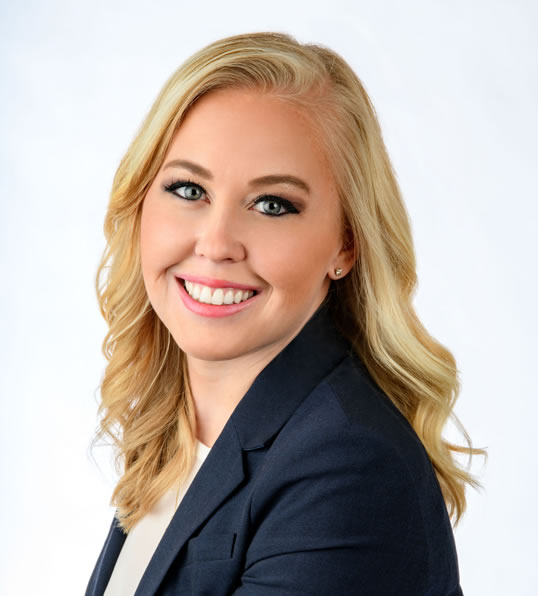Residential Borrower’s Guide to the Mortgage Foreclosure Process in Florida (Residential Property)
1. You have a mortgage on a residential property (single family home, condominium, townhouse or duplex) which mortgage was issued on this property in which you reside as your first home, used as your second home or simply use it as investment rental property.
2. The mortgage is now in arrears and in default and you have received a notification from your lender, generally in the form of a ‘Notice of Default’ or potentially acceleration letter or the mortgage debt, claiming the full amount due under the note and mortgage.
3. If you do not cure the default, a lawsuit is filed consisting generally of a Complaint, sometimes discovery, as well a Notice of Lis Pendens. The lawsuit is filed and served upon you which establishes the intent of the lender to initiate suit to foreclose on the mortgage and pursue other remedies which may include suit on the Note, suit on the Guarantee, or reestablishment of a lost instrument.
4. You are legally known as the “mortgagor” which is the borrower on the mortgage and will be referred to in the lawsuit as a ‘Defendant’, ‘Borrower’ or in some instances ‘the Mortgagor’.
5. Your lender is legally known as the “mortgagee” and will be referred to in the lawsuit as the ‘Plaintiff’, ‘Lender’ or ‘Mortgagee’.
6. The foreclosure action is the Lender’s actions to foreclose on the property and to ultimately receive a judgment establishing the total amounts due, which would be the principal, interest, taxes, insurance, attorney fees and court costs due the lender for initiating foreclosure proceedings, as well as the right issued by the Court to set a Clerk’s Foreclosure Sale to sell the property to recover the amount owed to the Plaintiff/Lender/Mortgagee on the mortgage.
7. After the suit is filed, you have 20 days within to file a responsive pleading to the complaint. Unless you are well versed in procedure, you should seek the assistance of a real estate attorney to assist you in this matter. If you are unable to afford an attorney there are a number of programs to you. There is a program available to you by the Florida Bar entitled FASH program 1866-607-2187 which might allow you to receive some guidance from an attorney in regards to this matter. If you are unable to afford the services of an attorney, at least respond to the allegations provided to you to avoid a default being entered against you.
8. If the Plaintiff/Lender in the action cannot obtain personal service upon you, it can publish a notice once a week for four (4) consecutive weeks and this publication will be notification for the foreclosure action commensurate as if you were personally served. The fact that you are not served with the Complaint after receiving Notice of Default, does not mean that no foreclosure action has been initiated. You should be aware of this particular point.
9. Prior to and during the time that your mortgage is in default, you have a number of positive and proactive procedures that you can use:
b) Contact a representative of a government owned program “Making Home Affordable” (www.makinghomeaffordable.gov ), which will give you access to see if you are eligible for a government sponsored loan modification;
c) Request the lender to modify your loan;
d) Pay the lender the amount to reinstate the loan;
e) Establish a forbearance agreement with the lender, either contacting the lender’s representative in loss mitigation, the foreclosure attorney or both to determine if there is a way to reinstate payments that allow you to forbear (delay) payments for a period of time until your are financially able to commence making these payments at an agreed upon sum;
f) List your property immediately with a broker to try to sell the property at whatever price that can be obtained in today’s real estate market which generally results in the property being listed as a short sale;
g) Offer the property to the lender and allow the lender to take an unconditional fee simple deed to the property without waiver of the lender’s deficiency;
h) Contact the lender and determine if the lender would accept a deed to the property and release you of further deficiency;
i) Request the Court to allow you to mediate your case by use of a Court Certified Mediator, which will require that you file a motion or request to the Court to allow such mediation to take place. You will need to follow up the formal request filed in the court files by contacting the Judicial Assistant of the Judge assigned to the case to get a date and time to appear before the Court to present your brief presentation on this point.
10. During the foreclosure action, the lender may have the opportunity to file for a ‘Summary Judgment Motion’ which is a request to the Court to indicate that the Court should enter prompt judgment to allow the lender to foreclose the mortgage. You can generally anticipate that somewhere between three (3) to six (6) months after the foreclosure suit is filed (or potentially longer given today’s drawn out foreclosure dockets) a lender may be able to file a Motion for Summary Judgment. Once the Motion is filed, the lender will serve affidavits establishing the amounts due and the attorney fees and costs incurred and thereafter schedule a hearing. A hearing on a Motion for Summary Judgment will take place no sooner than twenty-five (25) days after the Motion for Summary Judgment is mailed to you (twenty (20) days minimum for the hearing time and five (5) days allowed for mailing) at which time you will need to appear in front of the Court and advise of your position regarding the matter.
Prior to the Summary Judgment hearing, you have to file, within two (2) business days prior to the hearing and deliver to opposing counsel, an affidavit given by you under oath as to facts which you believe would be material which would preclude the Plaintiff/Lender from receiving a Foreclosure Judgment (add five (5) days if mailed). Unless you have viable claims this will not be of any benefit to you.
11. Once the Foreclosure Judgment is granted a judicial sales procedure is implemented pursuant to F.S. §45.031 which requires publication of foreclosure sale once a week for two consecutive weeks in a newspaper of general circulation in the county in which the property is located, indicating the date and time that the foreclosure sale will take place. Generally, foreclosure sales in Southwest Florida are being scheduled no earlier than thirty (30) days and no greater than sixty (60) days after the Foreclosure Judgment is entered. This also is dependent upon the scheduling of the Clerk’s Docket and understanding the fact that the Statute, F.S. §45.031(a) indicates that the dates shall “not be less than twenty (20) days or more than thirty-five (35) days after the date of the final judgment”. This Statute has been liberally construed and as indicated the time periods are generally extended.
At the Foreclosure Sale the Plaintiff/Lender can bid up to the amount of its judgment and any third parties can make appropriate bids as to acquire the property.
12. Within ten (10) days of the Foreclosure Sale a ‘Certificate of Title’ is issued by the Clerk conveying legal title of the subject property to the successful bidder at the Foreclosure Sale. Once the successful bidder at the Foreclosure Sale receives Certificate of Title, they can apply to the Court for ‘Write of Possession’ which is served on you by the Sheriff and allows them to take possession of the subject real property. This would enable the successful bidder to regain possession of the property through the use of the Sheriff’s Department.
Kevin F. Jursinski, Esquire
Florida Bar Board Certified Real Estate Attorney
©Law Office of Jursinski & Murphy
Important Notice and Disclosure. While we welcome inquiries about potential representation, please do not send any confidential information about any matter before we agree to represent you in that matter or we request information. Pursuant to Opinion 07-3, dated January 16, 2009, any information sent to us unilaterally may not be treated as confidential information and, depending on the circumstances, could be used against the person sending the information. Accordingly, before sending any confidential information to us, please contact us so that we may determine if we have any conflicts of interest and if we are otherwise able to represent you.











